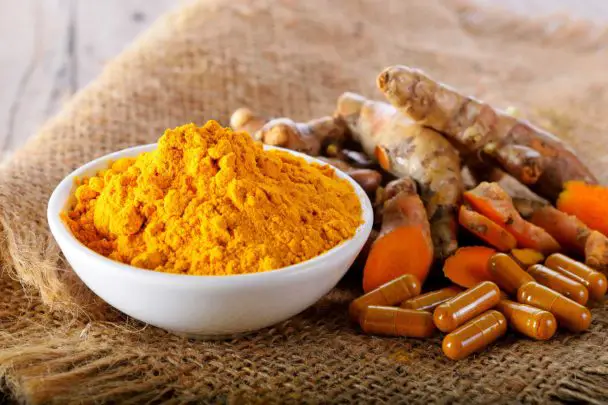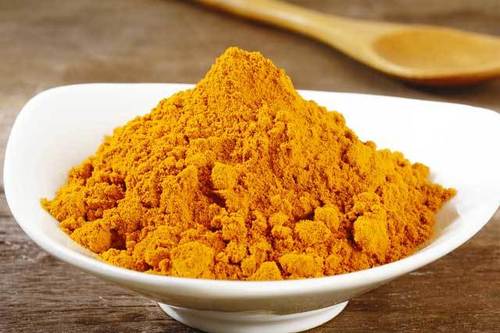Amazing Benefits of Curcumin
The benefits of curcumin are enormous. Curcumin is native to the continent of Asia. it belongs to the ginger family: Zingiberaceae. Turmeric has been used for thousands of years in Asia. It is commonly used as a spice in ethnic dishes. However, recent studies have shown that turmeric has many medicinal properties. Curcumin has been effective for high blood pressure, acute coronary syndrome, high cholesterol, congestive heart failure, and stroke.
Turmeric is a staple in Ayurveda medicine. Turmeric has antiviral properties, antioxidant properties, chemo-preventive properties, and other medicinal properties.
Turmeric can function as an iron chelator, and it is a free radical scavenger. Turmeric is currently in many different trials to further assess the benefits of turmeric. What does turmeric curcumin do?

1.Curcumin Benefits: High Blood Pressure
Is turmeric good for high blood pressure? Turmeric has been used for hundreds of years for its high blood pressure effects. However, it is unknown how Turmeric actually helps decrease high blood pressure.
The scientist believes that curcumin works by regulating the receptors expression in the arteries. The subjects were given curcumin 100 mg /per kg/day and black pepper 20 mg /kg/day.
The spices changed the remodeling of the wall of the aorta induced by high blood pressure. Curcumin was administered for 6 weeks.
Super Bio-Curcumin, 400 mg, 60 vegetarian capsules
2. Curcumin Benefits: Acute Coronary Syndrome
Acute coronary syndrome (ACS) is when the blood supply to the heart muscle is cut off. The acute coronary syndrome involves three situations involving the coronary arteries: ST elevation myocardial infarction (heart attack), non-ST myocardial infarction, and unstable angina.
- ST-elevation myocardial infarction– This type of heart attack occurs mainly due to a thrombus. This occlusion results in complete occlusion of a major artery. This is the most serious of the acute coronary syndromes because it must be treated by coronary revascularization.
- Non-ST heart attack-This is a less severe type of heart attack. That occurs when the artery is only partially occluded.
- Unstable angina-Angina or chest pain that occurs at rest and lasts for more than 20 minutes. There was a trial done on the effects of turmeric on total cholesterol, triglycerides, and HDL cholesterol in patients with acute coronary syndrome. The curcumin was given to the patients for two months. The three doses that were given was
- 45 mg/ day, 90 mg/day, and 180 mg/day. Surprisingly, the low dose was effective in decreasing total cholesterol and LDL cholesterol more so than the higher dose.
3. Turmeric Benefits: Atherosclerosis
Atherosclerosis is a major cause of cardiovascular events. Statins have gained popularity as 200 million prescriptions have been written at a cost of 34 billion dollars.
Statin drugs have severe side effects for some people and they can’t tolerate them.
It is well known that inflammation and oxidant stress contributes to atherosclerosis. curcumin has anti-inflammatory and antioxidant properties. This trial was done on both mice and human subjects. The dose used was from 20mg for 60 days.
These subjects ranged from 38- 90 years of age. The effects were striking in the subjects who had high baseline LDL levels. Conversely, there was no change in the subjects that had a low baseline LDL.
The conclusion of the study was that turmeric treatment lowers plasma cholesterol, and it also suppresses early atherosclerotic changes. These positive outcomes were obtained similar to statins, without the side effects of statins.
We know that high cholesterol is linked to inflammation. Curcumin decreases inflammation.
4. Curcumin Benefits: Congestive Heart Failure
Congestive heart failure is one of the leading causes of death in America, and throughout the world. During heart failure, the cardiomyocytes of the heart muscle are damaged.
This damage causes the muscles to become hypertrophied leading to cardiomyopathy.
The anti-inflammatory effects of Turmeric may have the possibility of preventing atrial arrhythmia. Congestive heart failure begins with the activation of the p300 histone acetyltransferase enzyme.
Turmeric is known to be an inhibitor of this enzyme. Curcumin at a dose of 50 mg/kg prevented deterioration of the systolic function in heart failure.

5. Curcumin Benefits: Stroke
Curcumin possesses neuroprotective properties. A stroke or brain attack occurs when blood flow is interrupted to the brain. Strokes are classified as ischemic or hemorrhagic.
Dietary food has found to have a great impact on the functioning of the brain. The stroke-preventing properties of curcumin can be attributed to the inhibition of nitric oxide and synthase, a lipid degradation.
Curcumin is also known to have radical scavenging properties. Curcumin also lowers cholesterol and increases HDL. The dose used in this study was 50 mg /kg. Magnesium is also neuroprotective.
6. Curcumin Benefits: Diabetes
Diabetes and heart disease are related. Curcumin does have anti-diabetic properties. Scientists think these properties come from curcumin’s ability to suppress inflammation and to suppress oxidative stress. Curcumin reduces blood glucose levels, and it reduces the complications of diabetes. This has been extensive studies of diabetes and curcumin.
The average study was done for 6 weeks and the subjects that were treated with curcumin had decreased glucose levels, decreased HbA1C levels, and decreased insulin resistance.
Curcumin is involved in the activation of liver enzymes. The liver enzymes play a major role in glycolysis and lipid metabolic processes. Another study showed evidence that curcumin combined with vitamin C had better outcomes.
Forms of Curcumin
- Curry – Curry is a season that is used and ethnic dishes. Curry is made of turmeric(curcumin), coriander seed, fenugreek seed, and cumin seed. The amount of curcumin in curry powder is very low
- Supplements – Curcumin supplements should contain at least 95 percent curcuminoids. A typical dose is 200 to 400 mg taken three times daily.

Side Effects
- Curcumin may cause stomach upset. It is best to take curcumin with food.
There is a plethora of evidence that curcumin can no longer be ignored in the treatment of cardiovascular diseases. There are a plethora of trials involving curcumin, and the pharmaceutical companies are paying attention.
Curcumin vs Turmeric
Curcumin is a component of the spice turmeric. Therefore, it really does not matter if you use turmeric or curcumin for the health benefits. In fact, most of the studies were done using curcumin.
References:
Alamy M, Bengelloun WA. Malnutrition and brain development: an analysis of the effects of inadequate diet during different stages of life in the rat. Neurosci Biobehav Rev. 2012;36:1463–1480.
Baltan S, Morrison RS, Murphy SP. Novel protective effects of histone deacetylase inhibition on stroke and white matter ischemic injury. Neurotherapeutics. 2013;10:798–807.
Fang L, Gou S, Liu X, Cao F, Cheng L. Design, synthesis and anti-Alzheimer properties of dimethylaminomethyl-substituted curcumin derivatives. Bioorg Med Chem Lett. 2014;24:40–43.
Curcumin: A Review of the Effects on the Human Body
My name is Phyllis Robinson MSN, RN. I have been a Registered Nurse for 27 years in the Cardiac Intensive Care Unit. I am passionate about cardiac care and heart disease. I also want this blog to be an educational tool that people can refer to for traditional and alternative treatment. I will blog on heart disorders such as high blood pressure, congestive heart failure, cardiomyopathy, and high cholesterol.
I received my Nursing degree from Baltimore Community College.
I went on to receive my Masters in Nursing from Walden University
I have worked for almost 30 years in Critical Care with a focus on heart health. I am an advocate of preventive healthcare.



I have just started with the information about Turmeric and Curcumin and fascinated about what I read, keep the results coming.